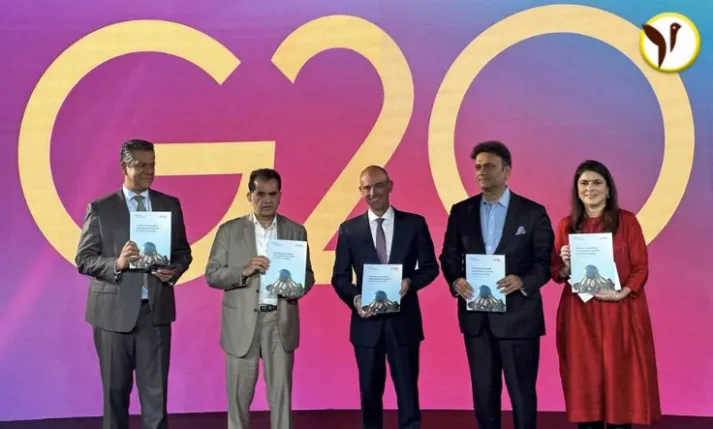The McKinsey report "Driving Sustainable and Inclusive Growth in G20 Economies" highlights the imminent rise of India, China, and Indonesia as global economic powerhouses by 2030. India, along with China and Indonesia, will possess the largest working-age populations among G20 countries, indicating a significant shift in economic geography towards the East.
The report suggests a transformative era, with digital advancements and data flows fostering increased global interdependence. However, the current landscape within G20 economies displays considerable variations in terms of sustainability and inclusivity.
The report highlights the burgeoning debt crisis, with debt levels reaching an alarming ratio of over 300% of GDP across G20 countries. The wealth gap between the wealthiest 10% and the bottom 50% has surged to levels not seen since the early 20th century. China and India are the primary engines of growth within the G20, but other nations excel in aspects of inclusivity and sustainability.
The report emphasizes the concept of "economic empowerment," striving to elevate a significant portion of the global population above certain economic thresholds in growth, inclusivity, and sustainability. This includes ensuring access to essential necessities, with $12 per person per day being a crucial benchmark for emerging economies and $47 per person per day for advanced economies.
Over half of the population in G20 economies falls below the economic empowerment line, including 100 million people living in extreme poverty, 2.2 billion in emerging economies, and around 300 million in advanced economies. To bridge this gap and foster sustainability and inclusivity, the report suggests a collective increase in spending on essentials of approximately $21 trillion over the next decade.
In India's context, the report highlights several exemplary initiatives. These encompass financial and digital inclusion through programs like Jan Dhan accounts, Aadhaar, and mobile services (known as the JAM trinity); affordable housing efforts targeting lower and middle-income groups; advancements in vaccination systems; enhancements in healthcare accessibility and quality through omnichannel approaches; initiatives to promote high-nutrition crops; significant expansion of solar energy capacity; strides in electric vehicle proliferation; and transformative waste management strategies, exemplified by the Indore Municipal Corporation.
As global economic dynamics continue to shift, the McKinsey report underscores the imperative of concerted efforts to bridge economic gaps, promote sustainability, and ensure inclusivity across nations.
Also, Read, French Government is spending Rs. 200mn to destroy wine







